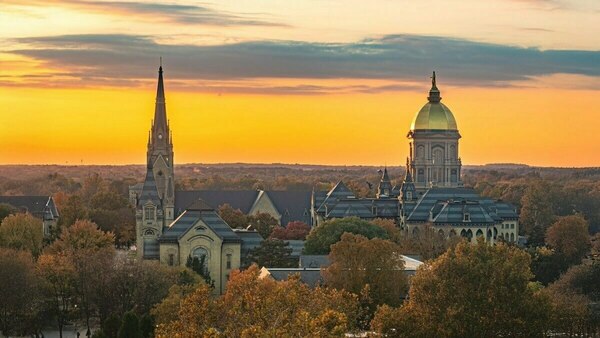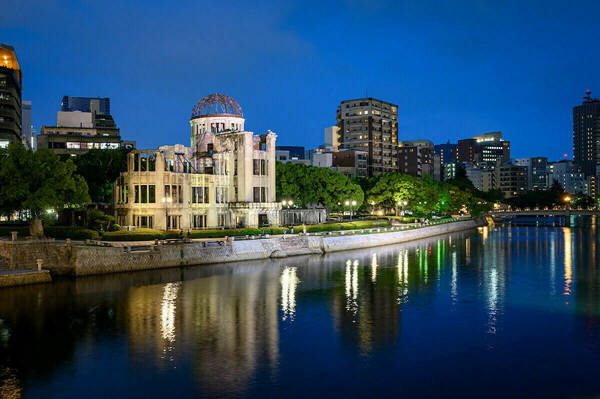Defending democracy
Kellogg visiting fellows work toward justice in their native countries
The democratic government in Ukraine is under military attack from a Russian invasion, while the democracy in Nicaragua was undermined from within by an elected but autocratic leader.
Representatives from both countries — Nazarii Stetsyk and Juan Sebastián Chamorro — are among the nine visiting fellows currently participating in a program the Kellogg Institute for International Studies has run since 1983. This residential program offers visiting faculty the time to pursue scholarly inquiry wherever it takes them, advance their personal research and collaborate with other scholars from across the U.S. and world.
In the spirit of this year’s Notre Dame Forum focusing on “The Future of Democracy,” here are their stories, which illustrate two of the ways that democracy can be threatened or dissolved. In a world where democracies are measurably losing ground, their experiences offer profound lessons in the ongoing fight for freedom, justice and a government that is responsive to the needs of its people.
Latest International
- Notre Dame’s Kellogg Institute partners with Vanderbilt University to launch 2025-26 democracy surveyThe University of Notre Dame’s Kellogg Institute for International Studies and Vanderbilt University’s Center for Global Democracy are partnering to advance one of the world’s leading surveys on attitudes toward democracy. Starting in October, the Center for Global Democracy, with support from the Kellogg Institute, will conduct the 2025-26 round of the AmericasBarometer, which tracks public opinion on democracy in 20 countries across the Americas.
- University of Notre Dame joins the Global Coalition of Ukrainian StudiesThe University of Notre Dame has joined the Global Coalition of Ukrainian Studies after signing a memorandum of cooperation, formalized Sept. 24, at the Ukrainian Institute of America in New York City. Notre Dame joined four other American institutions that were also publicly welcomed to the coalition at this event: Arizona State University, Columbia University, Manor College and the Shevchenko Scientific Society.
- Statement from University President Rev. Robert A. Dowd, C.S.C., on the anniversary of the atomic bombing of HiroshimaToday, on the anniversary of the bombing of Hiroshima, Father Dowd offered remarks at the Elisabeth University of Music as a guest of its president, Yuji Kawano, and Bishop Alexis Mitsuru Shirahama of Hiroshima. Father Dowd focused on the role that universities can play in addressing the current nuclear predicament and the wider challenges of peace in today’s world.
- Vatican honors Martin and Carmel Naughton with papal awardThe late Pope Francis, in one of his last acts, conferred the honour of the Order of Saint Gregory the Great upon Carmel and Martin Naughton, Trustee Emeritus of the University of Notre Dame. The papal honor is in recognition of the Naughtons’ outstanding philanthropy in the areas of education and the arts, particularly in the provision of philanthropic support and scholarships to Catholic education at the University of Notre Dame and Kylemore Abbey, and in their transformative contributions to higher education in Ireland.
- Prioritizing prenatal care may decrease low birth weight outcomes in The Gambia, Notre Dame research findsA new study co-authored by University of Notre Dame researchers highlights the importance of prenatal care for improving the health of mothers and newborns, providing evidence that can inform policy.
- Navigating the waters of peace: Researchers address challenges, opportunities in implementation of Colombia's Peace AgreementNearly half of the commitments outlined in Colombia's historic peace accord face significant challenges and may not happen in time unless policymakers make several key interventions, warns a new report from Notre Dame's Peace Accords Matrix. The report offers a blueprint to salvage an accord that has lagged behind its implementation deadlines, putting its legacy at risk. It highlights timely fixes that can strengthen the agreement.













